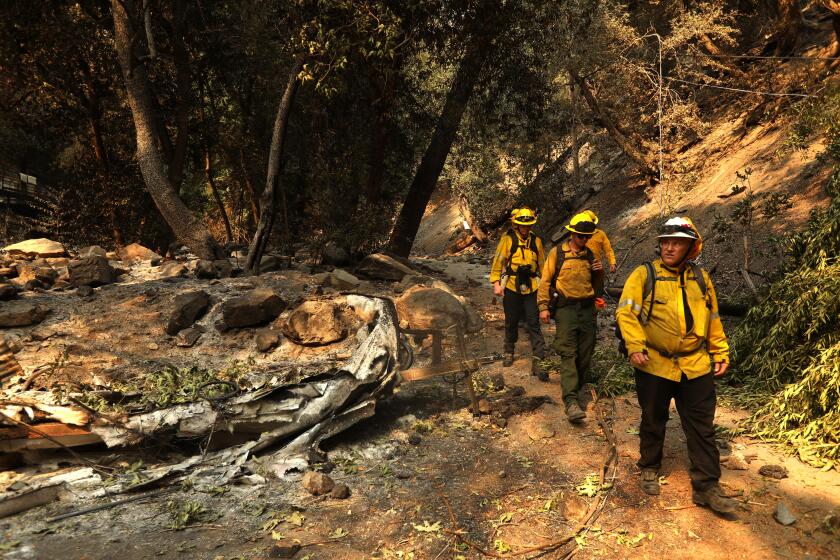Sherpas peaking in the Rockies
The kitchen was hopping, orders flying in from every direction, and Jangbu Sherpa was smack in the middle, deep-frying samosas while eyeballing a simmering yak stew.
Waiters rushed in — more momos, more thupka, more papadums!
Sherpa stayed cool, never breaking a sweat. And why would he?
He’s reached the summit of Mount Everest 10 times, seen men swept off high peaks, and survived an avalanche on K-2, the world’s most dangerous mountain.
“When I stood on Everest,” he said, glancing up from a pot of boiling oil, “I felt like I was standing on top of the sky.”
These days he stands over a hot oven at Sherpa’s Adventurers Restaurant & Bar in downtown Boulder, serving up Nepali and Tibetan fare.
Jangbu is one of a small but growing population of Sherpas who have left Nepal for this well-heeled town in the foothills of the Rocky Mountains.
Once considered little more than high altitude baggage handlers, the hardy Himalayan mountaineers have blossomed in Boulder. They own restaurants, operate trekking businesses and pray in the town’s Buddhist temples. And like all Sherpas, they share the same last name.
No one knows how many live in and around Boulder, though some put the number at more than 100 and counting.
“This is a good state for Sherpas,” said Lhakpa Sherpa, who runs a restaurant with a big, fuzzy yeti lurking stiffly near the buffet. “There are a lot of connections because we meet so many people from Colorado in Nepal.”
Sherpas are an ethnic group that originated in eastern Tibet and migrated to Nepal. Known for reliability and endurance, they are highly valued as porters and guides for climbing expeditions.
“All the Sherpas in Boulder are from the Solu-Khumbu district near Mount Everest,” said Pasong Sherpa, a Buddhist-monk-turned-chef who moved here 10 years ago. “Everyone in the Khumbu knows Boulder.”
His wife, Kandu, said the city’s open spaces, 5,430-foot altitude and majestic wall of mountains make her feel at home. “In my daughter’s kindergarten class they even learn the Tibetan alphabet,” she said.
Unusual perhaps, but not for Boulder.
Home to the University of Colorado, this progressive town has a longstanding infatuation with all things Himalayan, especially Buddhism. Naropa University, the country’s first accredited Buddhist college, is here along with the Boulder Shambhala Center, a nationally known meditation retreat.
“Boulder has a much larger population of people who actually travel, and I ain’t talking Cancun. I’m talking Nepal, Tibet, Laos,” said Todd Dickerson, who owns a business specializing in Buddhist artifacts. “I have the most extensive collection of Buddhist art in Colorado, and this town can’t get enough of it.”
Judith Simmer-Brown, a professor at Naropa, says she often runs into people on the streets “that I last saw in Katmandu.”
The Boulder-Himalayan connection began, she said, when Chogyam Trungpa Rinpoche, a famed Tibetan Buddhist scholar, came to teach at the University of Colorado and fell in love with the place, eventually founding Naropa University in 1974.
“This is a very natural place for a Sherpa to live,” said Simmer-Brown, an expert on Indo-Tibetan Buddhism. “There is nothing cooler than being a Sherpa in Boulder.”
And few have capitalized on it more than 38-year-old Pemba Sherpa.
“When I came in 1990 I was the only Sherpa in town,” he said, sitting inside Sherpa’s Adventurers Restaurant, which he owns, along with an international trekking company.
“I remember as a boy standing in my village eating a raw potato and carrying a farm animal,” he said. “Now I own my own airplane.”
Back in Nepal, where he has helped build bridges and medical facilities, villagers bombard him with requests to come to Boulder.
“I want to help, but I can only do so much,” he said.
At his popular restaurant, diners ask his advice on climbing and trekking. Ice axes decorate walls and mountaineering books sit on shelves. Photos of Sherpas who conquered Mount Everest hang in the lobby, including one of his chef, Jangbu Sherpa.
But as much as he loves Boulder, there’s one thing he can’t abide.
“Many people still think a Sherpa is just a porter, but it’s an ethnic group,” Pemba Sherpa said, sounding a bit exasperated. “I hear that so many times that I no longer even feel insulted. They just don’t know.”
Now they do.
Kelly writes for The Times.
Sign up for The Wild
We’ll help you find the best places to hike, bike and run, as well as the perfect silent spots for meditation and yoga.
You may occasionally receive promotional content from the Los Angeles Times.



